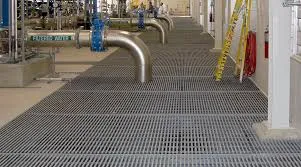
-
 Afrikaans
Afrikaans -
 Albanian
Albanian -
 Amharic
Amharic -
 Arabic
Arabic -
 Armenian
Armenian -
 Azerbaijani
Azerbaijani -
 Basque
Basque -
 Belarusian
Belarusian -
 Bengali
Bengali -
 Bosnian
Bosnian -
 Bulgarian
Bulgarian -
 Catalan
Catalan -
 Cebuano
Cebuano -
 China
China -
 China (Taiwan)
China (Taiwan) -
 Corsican
Corsican -
 Croatian
Croatian -
 Czech
Czech -
 Danish
Danish -
 Dutch
Dutch -
 English
English -
 Esperanto
Esperanto -
 Estonian
Estonian -
 Finnish
Finnish -
 French
French -
 Frisian
Frisian -
 Galician
Galician -
 Georgian
Georgian -
 German
German -
 Greek
Greek -
 Gujarati
Gujarati -
 Haitian Creole
Haitian Creole -
 hausa
hausa -
 hawaiian
hawaiian -
 Hebrew
Hebrew -
 Hindi
Hindi -
 Miao
Miao -
 Hungarian
Hungarian -
 Icelandic
Icelandic -
 igbo
igbo -
 Indonesian
Indonesian -
 irish
irish -
 Italian
Italian -
 Japanese
Japanese -
 Javanese
Javanese -
 Kannada
Kannada -
 kazakh
kazakh -
 Khmer
Khmer -
 Rwandese
Rwandese -
 Korean
Korean -
 Kurdish
Kurdish -
 Kyrgyz
Kyrgyz -
 Lao
Lao -
 Latin
Latin -
 Latvian
Latvian -
 Lithuanian
Lithuanian -
 Luxembourgish
Luxembourgish -
 Macedonian
Macedonian -
 Malgashi
Malgashi -
 Malay
Malay -
 Malayalam
Malayalam -
 Maltese
Maltese -
 Maori
Maori -
 Marathi
Marathi -
 Mongolian
Mongolian -
 Myanmar
Myanmar -
 Nepali
Nepali -
 Norwegian
Norwegian -
 Norwegian
Norwegian -
 Occitan
Occitan -
 Pashto
Pashto -
 Persian
Persian -
 Polish
Polish -
 Portuguese
Portuguese -
 Punjabi
Punjabi -
 Romanian
Romanian -
 Russian
Russian -
 Samoan
Samoan -
 Scottish Gaelic
Scottish Gaelic -
 Serbian
Serbian -
 Sesotho
Sesotho -
 Shona
Shona -
 Sindhi
Sindhi -
 Sinhala
Sinhala -
 Slovak
Slovak -
 Slovenian
Slovenian -
 Somali
Somali -
 Spanish
Spanish -
 Sundanese
Sundanese -
 Swahili
Swahili -
 Swedish
Swedish -
 Tagalog
Tagalog -
 Tajik
Tajik -
 Tamil
Tamil -
 Tatar
Tatar -
 Telugu
Telugu -
 Thai
Thai -
 Turkish
Turkish -
 Turkmen
Turkmen -
 Ukrainian
Ukrainian -
 Urdu
Urdu -
 Uighur
Uighur -
 Uzbek
Uzbek -
 Vietnamese
Vietnamese -
 Welsh
Welsh -
 Bantu
Bantu -
 Yiddish
Yiddish -
 Yoruba
Yoruba -
 Zulu
Zulu
fiberglass fan
The Versatility and Benefits of Fiberglass Fans
In recent years, the demand for innovative cooling solutions has surged, with fiberglass fans emerging as a preferred choice across various industries. These fans, constructed from high-quality fiberglass, offer numerous advantages over their traditional metal or plastic counterparts, making them an ideal solution for both industrial and residential applications.
One of the standout features of fiberglass fans is their remarkable durability. Fiberglass is known for its resistance to corrosion, rust, and environmental factors, which makes it an ideal material for use in harsh conditions. Unlike metal fans that can suffer from oxidation or plastic fans that may not withstand high temperatures, fiberglass fans maintain their structural integrity over time. This durability ensures a longer lifespan, reducing the need for frequent replacements and thus saving costs in the long run.
In addition to their durability, fiberglass fans are lightweight and easy to handle
. This property simplifies installation and maintenance, allowing for greater flexibility in setting up ventilation systems. For instance, in industrial settings where fans are installed high above ground, the lightweight nature of fiberglass equipment reduces the risk of damage during installation and makes repositioning easier.fiberglass fan

Moreover, fiberglass fans boast excellent design versatility. They can be manufactured in various sizes and configurations to suit specific needs, whether it be for large warehouses or smaller workshop environments. Their aerodynamic designs enhance airflow efficiency, ensuring optimal cooling and ventilation. This efficiency is particularly important in settings where temperature control is crucial, such as greenhouses, factories, and livestock facilities.
Another significant benefit of fiberglass fans is their ability to operate quietly. Unlike metal fans that often produce excessive noise, fiberglass fans tend to generate less sound during operation. This feature is particularly valued in environments where noise reduction is essential, such as in offices, residential areas, and sensitive industrial applications.
Energy efficiency is also a prominent advantage of fiberglass fans. Many models are designed to consume less power while delivering high performance, aligning with the global shift toward sustainable practices. Lower energy consumption not only reduces operational costs but also minimizes the environmental impact, making fiberglass fans an eco-friendly choice.
In conclusion, fiberglass fans provide a robust, efficient, and versatile solution for a wide range of cooling and ventilation needs. Their resistance to environmental factors, lightweight construction, design flexibility, quiet operation, and energy efficiency make them an attractive option for both industrial and residential applications. As the demand for effective cooling technologies continues to grow, fiberglass fans will undoubtedly play a crucial role in meeting those needs while promoting sustainable practices. Whether for enhancing workplace comfort or maintaining ideal conditions in specialized environments, fiberglass fans remain a top choice for modern cooling solutions.









